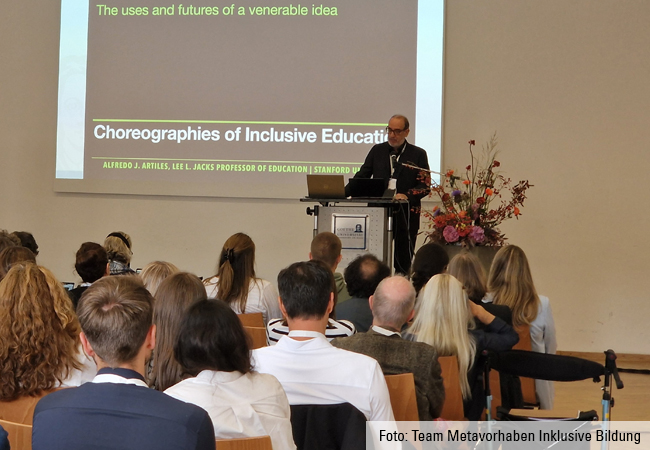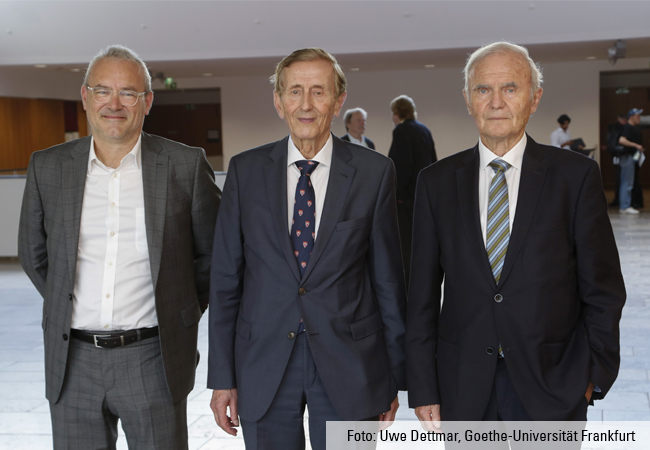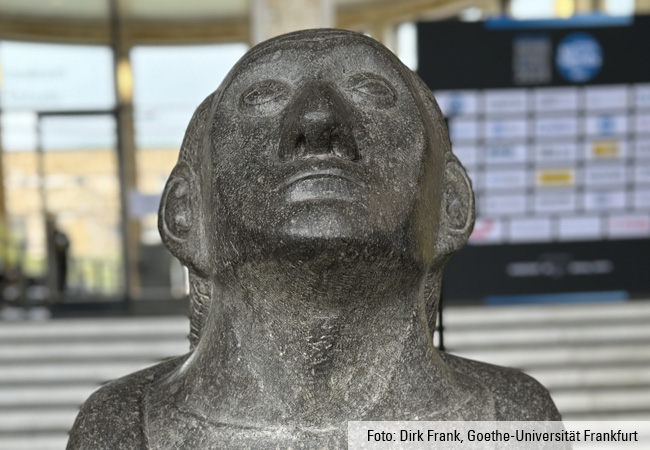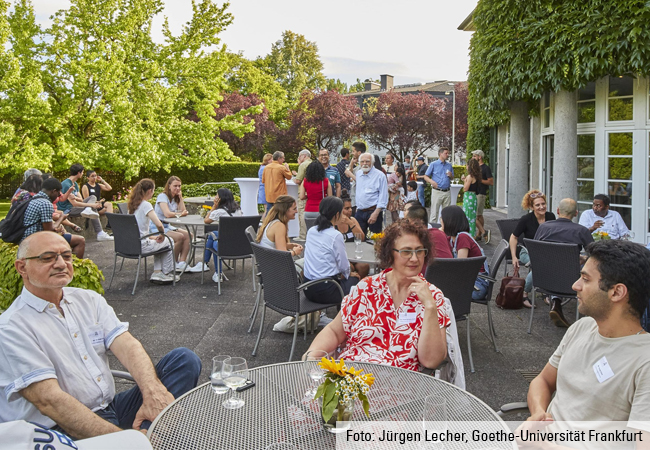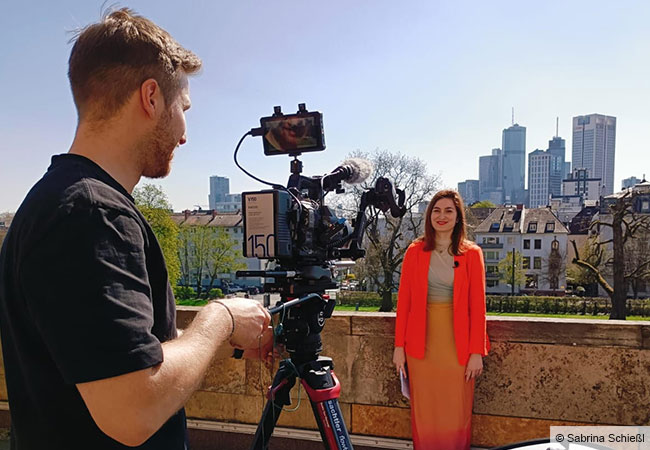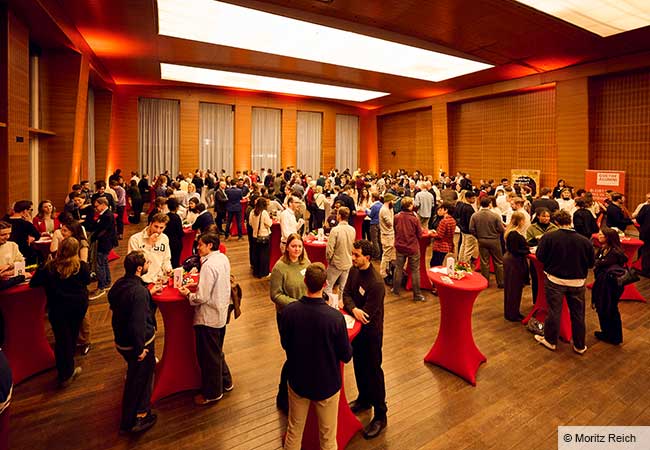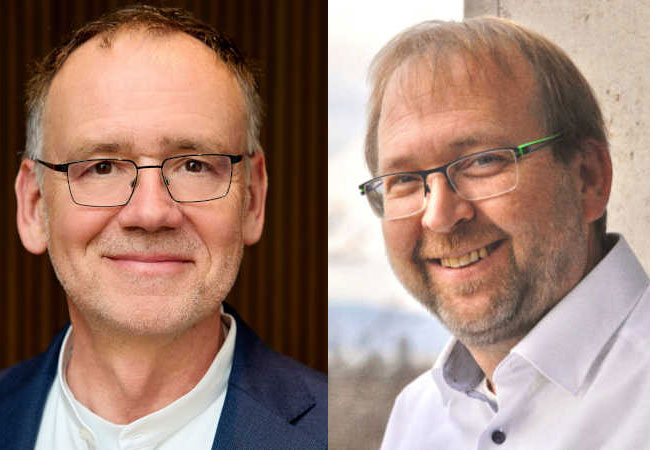In June Mayte Zimmermann took over as manager of the University of the Third Age (U3L). Developing the association’s involvement in research is a matter close to her heart.
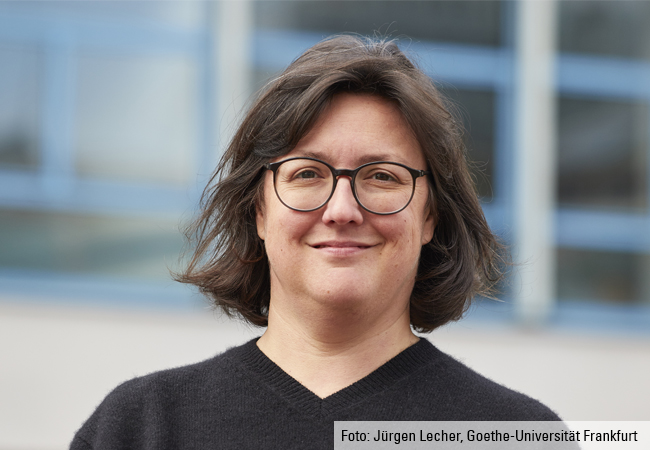
M ayte Zimmermann is a scholar of theater studies. After periods spent in Giessen and Hamburg, she returned to her native Frankfurt to obtain her doctorate at Goethe University, supervised by Prof. Nikolaus Müller-Schöll. Some questions from her thesis continue to occupy her today – “because, unlike certain empirical research issues, philosophical and aesthetic works tend not to result in a final answer,” she stresses in an interview for UniReport. Zimmermann has researched the question of “representing the other,” and while doing so has examined contemporary theatrical practice. “When I did my doctorate, one movement was very strong at the time: it was about putting performers from minority groups on the stages, to make a sort of aesthetic proposal of giving a voice to those who had been excluded from theater for so long. I tackled the question of to what extent the idea of bringing in the ‘other’ this way still inherently contains a kind of violence.” For this reason Mayte Zimmermann addressed the question of how, in performative aesthetics, one can examine one’s own tools and identify what remains – and, ethically speaking, must remain – inaccessible to one’s own approach.
Education without credit points
But what sounds like a theater studies discourse has another, more general social dimension for M ayte Zimmermann. “We can also transfer this question of representational ethics to the question of age. In a specific way older people are a marginalized group, a group made somewhat invisible in our society.” Questions arise about how this group can be enabled to participate as students or as researchers, plus questions of age as a specific research perspective in educational processes – without using or perpetuating stereotypical representations of “the elderly” or “old age.”
After Zimmermann completed her doctorate, her interest in educational questions grew significantly. At the University of Koblenz she established the Center for Contemporary Theater and Performance as its manager. Its main focus is preparing students studying to be teachers for the school subject of theater. “At the latest since I worked in Koblenz, I have regarded education as a very central pillar of democratic societies. In this regard, universities have a huge responsibility, because we know from research that they reproduce social inequalities. The U3L is located on one of the key axes of these social inequalities – it articulates issues of fairness in education and of inclusion and puts them into practice.”
Mayte Zimmermann sees educational courses like those of the U3L not simply as a “nice pastime.” She mentions the term “self-reference” in respect of education without having to reach a certain standard or earn credit points.
For her, the question of who has any access at all to education is a fundamental issue. She concedes that at first glance the U3L students appear to be a homogenous group, but adds, “As quite a lot of evaluation is carried out, we know that we’re very good at reaching one particular target group, i.e. women with lower-level educational qualifications, who in the past were prevented from going to university by social restrictions. Either their husbands didn’t let them, or their families disapproved. But the clientele is actually much more heterogeneous than it seems at first.”
Catchwords: digitization and diversification
She believes the major challenges of the future will include dealing with the diversity of the target group, and creating a better range of online educational opportunities. It is true, she says, that the U3L sees itself as a university for senior citizens to attend in person. “But these rooms can sometimes make people with ‘educational injuries’ feel that they cannot access them – due to a feeling of inferiority, or to practical reasons like the distance from their homes.” Digitization is an important catchword for making the U3L fit for the future. Mayte Zimmermann simultaneously recognizes some pedagogical issues: if we start considering who might be excluded by academic knowledge, we must simultaneously ensure that U3L lecturers take account of this in their thinking.
When Mayte Zimmermann discovered the organization was advertising for a new manager, she was most attracted by the wording that a person was being sought to “develop the U3L’s involvement in research.” “Over the longer term, I’m interested in the U3L continuing to carry out gerontological projects. And at the same time I’d also like my structural work here to be guided by contemporary research projects,” she says. In the future the U3L’s involvememt with research will surely benefit from the appointment of gerontologist Prof. Frank Oswald as its new deputy chair.
The U3L had almost 3,000 students last semester, and the semester fee of 150 euros forms the basic funding for the entire range of courses. This means that the U3L has to maintain its student numbers. “To do so, it’s important that in demographic terms Frankfurt also has an increasing number of migrants in our potential target group – whom we’re not reaching very well at the moment. That is a productive challenge for us; although at the same time I’m very optimistic overall about the demand for our activities.”
Mayte Zimmermann has been in her new post for only a few weeks, but she already likes the “incredibly positive work culture,” as she calls it – the “synthesis of substantive orientation and organizational structure” at the U3L. “I don’t have the feeling that this is an association I need to spruce up. Quite the opposite – a lot of things here function very, very well because it’s a project that’s close to the heart of very many people who work here. Here I experience education in a way that I haven’t done for a long time.”


